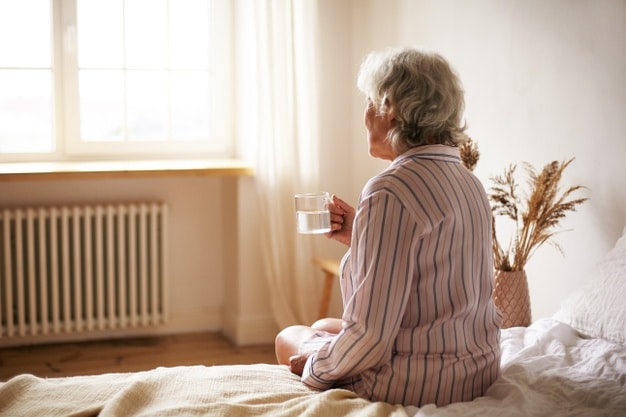As the government announced their plans to ease the lockdown measures over the coming months, it was the light at the end of the tunnel that we have all been eagerly awaiting. Many people were elated and began making plans for the summer; but if you didn’t share that same excitement, and instead experienced feelings of anxiety or trepidation, you’re not alone.
The prospect of life after lockdown can seem daunting, especially to those who have been classed as high-risk or vulnerable for the last year, and you may even feel anxious at the thought of meeting with loved ones again after so many months apart.
It is not unusual to feel uneasy about big changes and you may have even found it difficult adjusting to life in lockdown, which now feels like the new ‘normal’, so we have put together some of our tips for readjusting to life after lockdown.

Preparing for life after lockdown
It is key to take things at your own pace. The ‘roadmap’ that the government is following may not align with what is best for you, so try not to focus on the milestones set out but create your own goals to work towards instead. Whether your aim is to get outside for a walk or perhaps you’d like to meet a friend for a coffee in the park when rules permit, concentrate on building up towards that goal.
Be clear with family and friends about how you are feeling, consider explaining how you are feeling about the upcoming changes, or you may find it easier to send them this blog to help them understand. By communicating how you are feeling, your loved ones will find it easier to respect your boundaries and help you adjust to the ease in restrictions; you could even ask someone close to you to help you reach the goal you have set out.
Although the idea of returning to a ‘pre-covid normal’ may be overwhelming, try to rationalise the idea of lockdown coming to an end. Ask yourself how and why the government have set out these milestones. Due to the successful rollout of the COVID-19 vaccination, more than 22 million people are now more protected against the virus. This success, alongside scientific monitoring of the R number, mean that the government believe we are in a position to slowly start easing restrictions soon. The milestones are also aspirational, meaning that if it is not safe to lift the lockdown, they won’t. By rationalising life after lockdown and focusing on the scientific research, you may find it is easier to come to terms with.

Protecting your mental health as lockdown eases
Ultimately, the most important thing is you and your wellbeing; if you are apprehensive about lockdown easing, there are things you can do to protect your mental health. The following tips can be used to help you feel more confident in each step as lockdown eases. However, if you are struggling with your mental health, please contact your GP to discuss the services available to you.
- Don’t rush yourself, if something fills you with feelings of anxiety, perhaps try a smaller alternative first.
- Try not to consume too much news, whether it is on TV or in the newspaper. Pick up a new book and lose yourself in a fictional world or try some meditation tricks to switch off from the outside world.
- Take each day as it comes. It is easier said than done, but if you can, try not to plan too far ahead. Think about what you need and would like to do over the upcoming week, use those things as priority and then use that mindset before each week. By doing this you will focus on the present, rather than looking too far into the future.
- Recognise how you are feeling and try not to bury your worries. Some people find writing down their anxieties or saying them out loud really calming, almost as if you are letting them go. Whatever works for you, find a way to reduce the amount of time you think negatively, as this will impact your overall mood and wellbeing.
Things to remember
It is important to remember that you’re not alone in feeling anxious about life after lockdown, and if you feel able to talk to friends and family about it, you may even find that they also feel this way. Focus on what you can control and appreciate the little things, whether that means enjoying your morning cup of tea out in the sunshine or listening to your favourite music when you begin feeling overwhelmed.
Reach out to loved ones for emotional support as a problem shared is a problem halved. Here at Helping Hands, we provide care that is so much more than just physical support, our companionship enhances your emotional wellbeing. Perhaps you’d like a chat over a cup of tea, or someone to help you adjust to life after lockdown in the outside world.
For more information, please call 0330 029 8699 or request a callback and we will call you.
